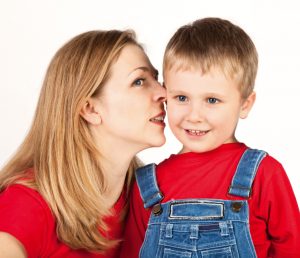Is it the grouch monster?
 Long ago when my daughter was young, we noticed moments when her personality seemed to shift on a dime. She would flip from cooperative to irritable at a speed that left us bewildered. As we tried to make sense of it we became aware that this was occurring between meals and often when we went to pick her up from preschool. Drawing on my nursing background I wondered if she may be having blood sugar drops and asked the pediatrician if she could be diabetic. While that could have been the explanation, we were relieved it wasn’t diabetes.
Long ago when my daughter was young, we noticed moments when her personality seemed to shift on a dime. She would flip from cooperative to irritable at a speed that left us bewildered. As we tried to make sense of it we became aware that this was occurring between meals and often when we went to pick her up from preschool. Drawing on my nursing background I wondered if she may be having blood sugar drops and asked the pediatrician if she could be diabetic. While that could have been the explanation, we were relieved it wasn’t diabetes.
Having eliminated a medical diagnosis, we did find we were on the right track. We repeatedly saw the link between mood and food and were left to conclude that she was either missing hunger cues or the cues weren’t strong enough to get her to stop what she was doing to eat. If we got food into her, she would snap back to her darling self. The longer it took to get food into her, the worse it would get. What was most frustrating is that while food was the answer, our daughter would deny she was hungry and refuse to eat in an insistent and sometimes defiant manner. It was as if it was a wave and if we missed the beginning of the surge, we just had to wait for it to crash on the beach and recede.
We resorted to having food in the car or with us at all times. Nuts, fruit roll-ups and “power bars” became a staple. Armed with food and a routine that included eating something before getting out of the car or into the car, we had fewer eruptions. The evidence was clear and undeniable to us, but less obvious to her.
Given this reality, we embarked on the task of helping our daughter increase her awareness of the connection between food and mood. There was a temptation to try to convince her that “If you would only eat, you would feel better.” In her grouchy state however, that would only add fuel to an already hot fire. We needed to find a way to get her to buy in if she was going to cooperate with getting ahead of the situation. Not wanting her to think we were blaming her, we had to come up with a way to grow her awareness to support her ability to take care of herself.
Our solution to this dilemma was to create a metaphor, a way to represent to our daughter the association between mood and foods. This led us to come up with the “Grouch Monster.” The Grouch Monster is a sneaky sort. When tummies get empty, it sneaks in. It takes over and doesn’t want to be chased away, so it lies and makes you believe you are not hungry. Yet, the only way to chase it away is to crowd it out by putting food in your stomach. It was both playful and helpful to have this language. Over time the Grouch Monster helped her make sense of a process that was otherwise invisible to her. It took a long time for her learn to get ahead of it and make the choices she needed to take care of herself, but it opened the door to us being able to talk about and plan together.
Since the birth of the “Grouch Monster,” I have shared this metaphor with countless families. He or she has been helpful to families as they discover that the Grouch Monster can take over anyone! As each child embarks on their discovery of the Grouch Monster, it takes on many forms: color, size, gender, etc. Drawings help children learn about this devious monster so they can learn to not be its victim. As children learn about their Grouch Monster, they become amazing masters of discovery, finding when it shows up in their parent and siblings. With this playful approach, each member can explore their personal Grouch Monster, how mood and behavior are impacted, and the magic remedy to chase it away. As you help your child on this journey, be on the lookout for it to show up between meals, after high sugary snacks, or meals lacking protein to maintain blood sugar.
Is there a Grouch Monster lurking behind the scene at your house? Consider noticing when your child’s behavior shifts. This is a discovery you can embark on with your child, including the possibility that you may have your own grouch monster. Have fun and feel free to be playful in your hunt for the Grouch Monster and experiments on what it takes to tame it!
Tags: parent child communication, parenting, parenting skills, parenting tips, parents, tantrum, temper tantrums








